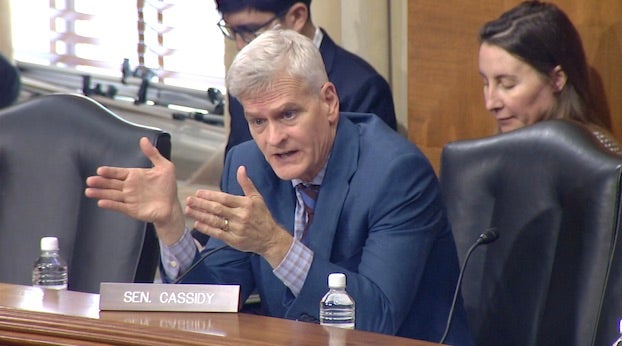Time to reign in national debt
Published 6:00 pm Saturday, July 6, 2019
The Congressional Budget Office has released its 2019 Long-Term Budget Outlook, which highlights the need to rein in the growing national debt, if Congress wants to really help average income Americans.
The yearly report projects budget expectations for the next 30 years reflecting current law. “Large budget deficits over the next 30 years are projected to drive federal debt held by the public to unprecedented levels — from 78 percent of gross domestic product (GDP) in 20019 to 144 percent by the year 2049,” the report states.
Trending
The report, the CBO points out, is highly sensitive to slight changes that could make the outlook much worse. For example, if the nonfarm sector was only a half of one percent lower each year than the CBO projects, the 2049 debt could be 185 percent higher than GDP.
Currently the U.S. National Debt is over $22 trillion, according to the U.S. Debt Clock. To give you some idea just how huge a trillion dollars is, the Merriam-Webster dictionary definition of a trillion is 1,000 times one billion.
But that’s not all, that figure does not include unfunded obligations of the government for programs such as Medicare, Medicaid and Social Security , which the Government Accountability Office says will exceed tax revenues over the next 75 years .
The present value of those unfunded payouts is $45.8 trillion. Other unfunded liabilities of the government adds nearly $62 trillion to the national debt.
And yet we have some in the government wanting to spend trillions more on such proposals as Medicare for all, the “New Green Deal,” and free college for everybody. Of course there is nothing free and taxpayers would have to foot the bill.
Citizens Against Government Waste, a non-partisan group which advocates fiscal responsibility, recommends that Congress should fix this situation before it gets even worse.
Trending
It’s “Waste Watcher staff” notes that slower economic growth and increased debt purchases by foreigners will lead to lower wage and income growth for middle class Americans.
“Lawmakers must cut spending and put the debt on a downward trajectory, curb the growth of health care sending, make Social Security solvent, and further reform the tax code,” the group recommends.
That is wise advice and a policy that will help average income Americans more than increasing taxes to pay for the ever-increasing national debt.





